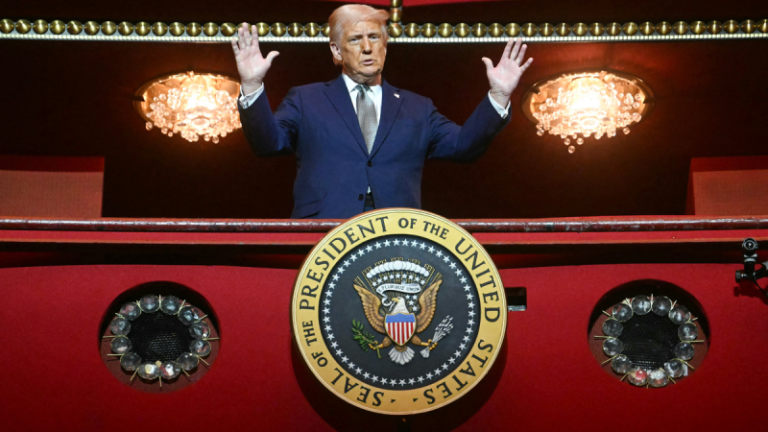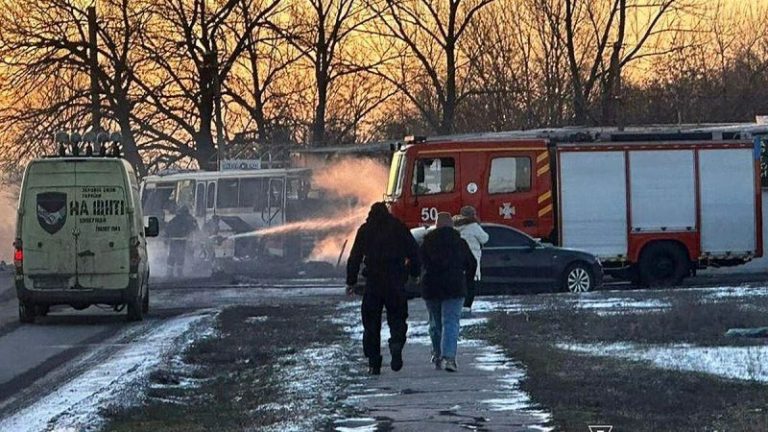Spencer Pratt says many in Hollywood privately support his criticism of Los Angeles leadership, but fear keeps them silent.
The 41-year-old reality TV star and ‘The Guy You Loved to Hate’ author, who rose to fame on MTV’s ‘The Hills’ and is now launching a bid for mayor of Los Angeles, told Fox News Digital that while he often finds himself standing alone in public, the support he receives behind closed doors tells a very different story.
According to Pratt, those conversations tend to happen far from cameras and social media. He said they often take place in restaurants, where well-known figures feel safe enough to ask questions, listen and express gratitude without attaching their names to his cause.
‘I know actual A-list stars support what I do, because I’ve been at restaurants, and they sit down at the table, and they quiz me about everything that I know for 20 minutes and thank me,’ Pratt said. ‘But these people know if they do that publicly, they risk losing their careers that some of them have been working for 30 years to have.’
Pratt said he understands the risks that come with speaking publicly and doesn’t fault those who choose to stay quiet.
‘So, I don’t judge them,’ he added. ‘It’s just the same with firefighters that don’t come forward with the truth because of retaliation. There’s no difference between public employees who know what’s going on and celebrities. Everyone sees what’s happening, but everyone’s scared to talk.’
The fear Pratt describes is not limited to Hollywood insiders. He said it reflects a broader culture of silence across Los Angeles, where people see what is happening around them but hesitate to speak publicly.
For years, Pratt admits, he was part of that silence himself.
‘Well, it’s obvious that they burned my house down, is what gave me the confidence, because I was quiet as well,’ he said. ‘I let a lot of this stuff happen over the years because I’m in my house, I’m just going to turn on the TV and pretend that what’s happening in Los Angeles isn’t happening. But once that’s gone, it’s real easy to speak up.’
Pratt’s decision to speak publicly and eventually step into politics didn’t come overnight. He said losing his home forced him to confront realities he could no longer ignore and stripped away the comfort that once allowed him to disengage.
Pratt and his wife, Heidi Montag, lost their Pacific Palisades home in a wildfire in January 2025. Pratt said his parents also lost their home in the fires.
Once that shift happened, Pratt said he began to see his voice as less optional and more necessary. He believes the timing of that realization was not accidental.
Pratt said the release of his memoir and his decision to run for mayor unfolded simultaneously in a way that felt beyond his control.
‘The timing of the mayor and the book — that’s God’s timing because the book actually came together right after the fires over a year ago,’ he told Fox News Digital. ‘So, the writing’s been happening all year.’
As the manuscript took shape, Pratt said he was watching the political landscape closely and growing increasingly frustrated.
‘And then when I saw that nobody was stepping up to run against Mayor Karen Bass in the last month or so, I had to do it,’ he said. ‘Again, it’s God’s timing.’
That frustration, Pratt said, ultimately led him to challenge the city’s leadership directly.
‘I’m going to run against you because you shouldn’t have this job,’ Pratt said. ‘You should have resigned on January 7 on the airplane back from Africa.’
Despite knowing the decision would bring scrutiny and criticism, Pratt said a sense of inevitability carried him forward.
The memoir at the center of that moment, ‘The Guy You Love to Hate,’ takes a deep dive into the public persona Pratt became known for during his rise to fame on reality television and the strategy behind it.
‘The memoir is called ‘The Guy You Love to Hate’ because my goal was always to be fun and entertaining,’ Pratt said. ‘Obviously, it went sideways at times, but it was to make TV and to have drama, to be like a soap opera.’
Pratt said that, early in his career, he received advice that shaped how he approached reality television and the role he played within it.
‘David Foster gave me advice when I first did my first television show to be the Simon Cowell — the new young Simon Cowell — of reality,’ he recalled. ‘I went a little far with it, obviously.’
Looking back, Pratt acknowledges that the character he leaned into often lacked logic or restraint, but he insists it was never accidental.
‘And I wasn’t judging anyone’s talent, so there wasn’t really any logic to what I was doing,’ he said. ‘But there was always a purpose, as you’ll read in the book.’
That purpose, Pratt said, was financial.
‘It was a plan to make money with this character,’ he explained. ‘I wasn’t doing it for free.’
Pratt said one of the biggest misconceptions about him is confusing the character he played on television with who he actually was.
‘Who I was versus who I was being,’ Pratt said.
Now, with more distance from that chapter of his life, Pratt said he views even his most controversial moments differently.
Asked whether there were parts of his life he wishes he could change, Pratt said he doesn’t regret any of it.
‘I don’t regret any chapters of my life because they are hard experiences that got me here to go up against someone like Karen Bass and the system of Los Angeles politics,’ he said.
Instead, Pratt said those failures became preparation — lessons that sharpened him for the fight he believes lies ahead.
‘So, I look at even my failures and mistakes as training ground for where I am now,’ he said. ‘I look at them as lessons learned to do better in the future.’
Spencer Pratt’s memoir, ‘The Guy You Loved to Hate,’ is out now.
This post appeared first on FOX NEWS










